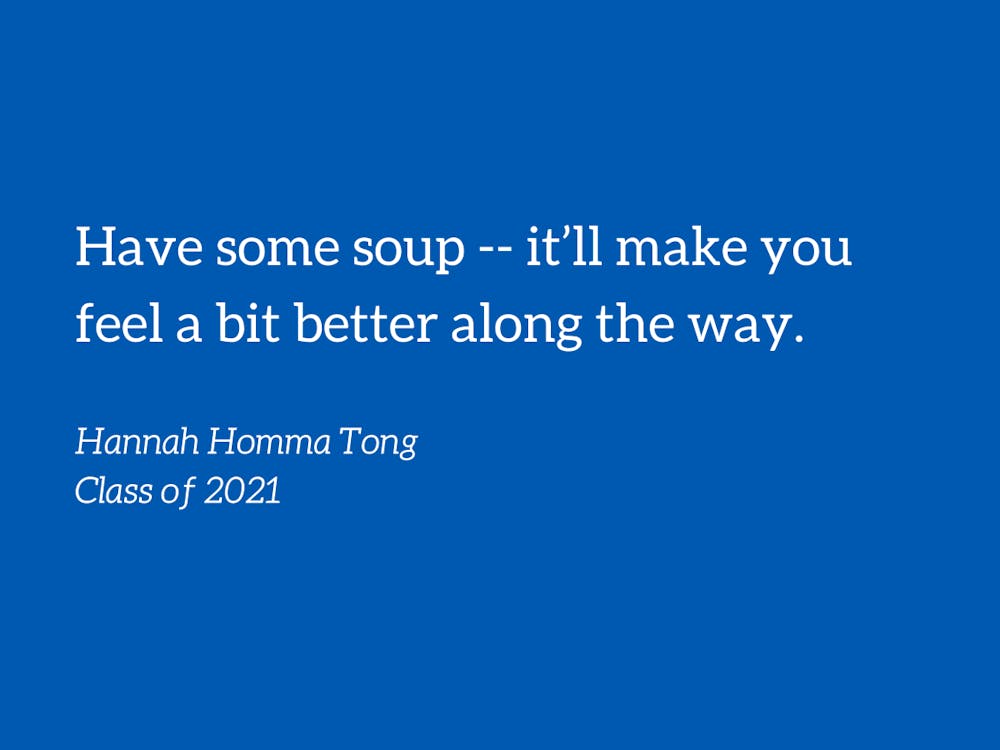A small ritual I’ve developed since my return to Durham from our much-needed holidays has been to start my mornings by heating water in my electric kettle. The use of an electric kettle is a habit I’ve carried from my time in the United Kingdom, where my consumption of tea and biscuits (of the custard cream variety, and not accompanied by gravy), was at a lifetime high, while the practice of drinking warm water is one I’ve inherited from my family in Hong Kong. Back home in Hong Kong, hot water dispensers (which also function to brew tea) are as ubiquitous in kitchens as fridge water dispensers are here in the United States. Chinese culture possesses a general aversion to the consumption of cold water, stemming from the precept in traditional Chinese medicine that cold water disturbs the balance of the body. You would be hard pressed to find restaurants in Hong Kong that serve the American restaurant standard of water with ice. Hot tea and warm or room temperature water are usually preferred.
Soup is another indispensable part of Chinese culinary culture. Home cooked meals always feature a rotation of pork-, chicken- or fish-based broths complemented by assorted vegetables, from radishes to watercress and herbs such as goji berries, red dates and ginseng. Soup drinking, like warm water consumption, reflects traditional Chinese medicine principles. Not only are Chinese soups as delicious as they are varied; their ingredients are believed to mediate balance within the body. Chicken noodle soup might be the closest comparison I can draw within an American context. Having once held a clearly undeveloped palate and a blatant disregard for soups in my younger years, viewing them as just a few ingredients removed from hot water, I now hold the potentially controversial opinion that soup, not rice, is the cornerstone of Chinese meals.
Embedded within the practice of Chinese soup making is the fundamental philosophy of yin and yang. The duality of yin and yang represents the connected, complementary and yet contradictory elements of all aspects of the universe. Their relationship is not static, however, but shifts in a dance of mutual transformation. The spiral-like black and white symbol elegantly captures their interdependence, showing how one waxes as the other wanes, the center of each half dotted with the opposing force— one growing out of the other.
In traditional Chinese medicine, the key to good health is balance between yin and yang. Soup is a form of medicine in maintaining this balance. In my grandmother’s kitchen, the ingredients are carefully selected. It is brought to a boil, then a simmer, in a process that has no patience for haste. Through the centuries-old practice of drinking Chinese soups, I am nourished not only by the labor of love in food creation, but also in body, mind and spirit.
I feel the echoes of that tradition when I begin my early mornings sipping warm water. It’s a poor substitute for soup, I know, but something about the soft bubbling of a roiling boil that builds to a satisfying click soothes my jetlagged weariness. Where waking up before 11 a.m. was unthinkable during winter break, I find myself appreciating these moments of stillness that darkness before daybreak brings. Encounters with the early hours of the day—whether through late nights spent with loved ones, all-nighters as a result of time mismanagement or wake ups as the side effect of crossing time zones—have always filled me with a sense of optimistic existentialism. Lately, during these mornings in the days that are the start to the end of my time at Duke, I’ve been meditating on these concepts of balance and duality.
In facing this semester, I’ve felt as though I am teetering on a precipice to the great unknown. I am equal parts excited and terrified, eager for a new chapter but filled with melancholy for the memories, routines and minutiae of life that I will leave behind. I worry about spending time wisely, with an increasing sense of urgency as the pace of the semester picks up and yet recognize that this awareness has brought me a profound consciousness of the precious value of this place in this moment of time, with relationships that will never be configured in this particular way again.
In the last 100 days of our undergraduate journey (for us seniors at least), I hope we find a balance that brings harmony, to make peace with our time here. And have some soup—it'll make you feel a bit better along the way.
Hannah Homma Tong is a Trinity senior. Her column runs on alternate Thursdays.
Get The Chronicle straight to your inbox
Signup for our weekly newsletter. Cancel at any time.

